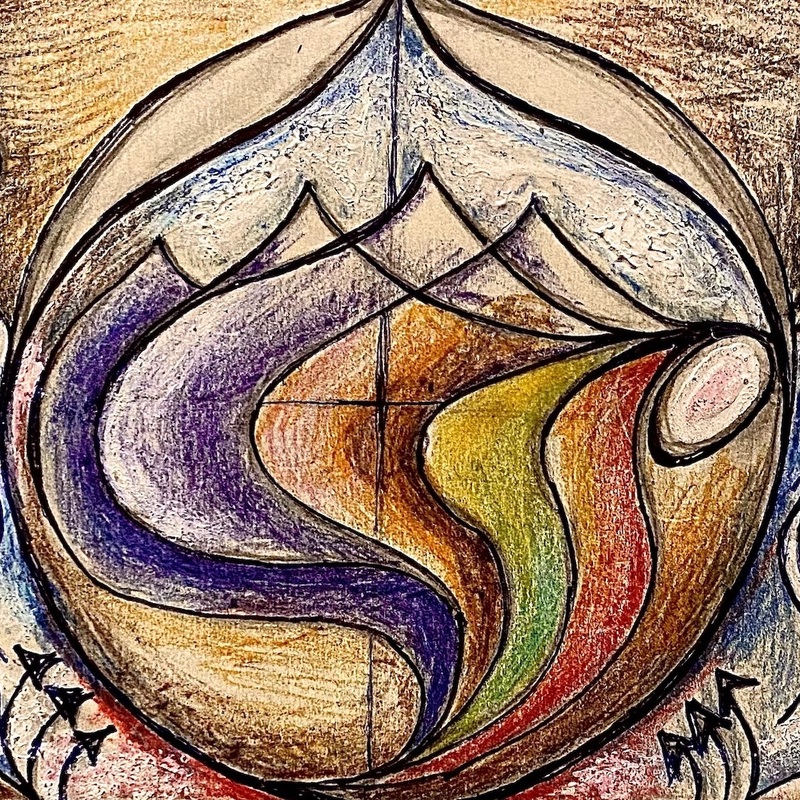Suche
When Trauma is Passed on through Generations
DOI: 10.17160/josha.9.5.848
Transgenerational trauma is the transmission of the effects of traumatic experiences through generations via genetic inheritance. In other words, a father’s trauma can change his genetic profile which is inherited by his son and grandson. This phenomenon has been well-document since World War II (WW2) where the Holocaust and the Dutch Hunger crises led to transgenerational trauma in millions of families. This article discusses the transgenerational trauma aftermath of WW2, and dives into the new neuroscientific results that uncover how these trauma induced epigenetic changes affect the brain and behavior of human beings. The article finishes with a discussion of what types of experiences can trigger transgenerational trauma, and reflects how the COVID-19 pandemic may be the source of a new wave of transgenerational trauma. The article was first published in ‘Subkit’ on August 01, 2022 (https://www.subkit.com/pernillebuelow/posts/when-trauma-is-passed-on-through-generations).
Pandemic, Mental Health and Digital Interventions
DOI: 10.17160/josha.9.5.847
The COVID-19 pandemic has caused extraordinary upheaval in our lives. The long list of precarious scenarios, including, but not limited to, health concerns related to covid, social distancing, and financial strain, has resulted in ballooning mental health crises. As a result, the field turned to emerging digital interventions to address the elevated demand for mental healthcare to offer accessible and affordable solutions. While digital therapies and online solutions have existed before the pandemic, recent adoption and use of digital interventions has several benefits and needs long term investigations to further our understanding of the field.
Introducing Neuroscience Research in the Mental Health Space: The Past, Present and Future
DOI: 10.17160/josha.9.5.845
The earliest records of mental health research date back to the 9th century. Since then, remarkable strides have changed the ways we perceive, study and treat mental illnesses. This article gives a historical overview of how mental health research and treatments have changed since the 9th century to present day. Throughout the article discusses why these changes happened and how they impacted people, particularly minority groups and females. The article concludes with a reflection on where the current mental health research is headed. The article was first published in ‘Subkit’ on July 01, 2022 (https://www.subkit.com/pernillebuelow/posts/introducing-neuroscience-research-in-the-mental-health-space).
Editorial Volume 9, Issue 4
DOI: 10.17160/josha.9.4.844
Dear josha-journal readers, Summer and the time of vacation are largely over. It's time to get back to work and studies. However, the past two summer months were anything but unproductive, as can be seen from the latest issue of josha-journal. The focus during these months was on India. But of course, we also devoted time to other topics and regions. In October, we would like to announce this year's winners of the Demetrios Awards. Until then, a team of josha-journal and the International Academy of Sciences, Humanities and Arts is working on the evaluation of the submitted papers. These will gradually be published in our journal as well. It remains exciting. The team wishes everyone a good start to the academic year. Stay tuned to us.
Suicide Prevention Inequities in Colombia: A Call to Action
DOI: 10.17160/josha.9.5.842
In Colombia (South América), suicide care is focused on prevent people to kill themselves. Prevention guidelines have been designed without a sensitive understanding of particular population needs and its social determinants, which can lead to the accentuation of social and health inequities, due to differential exposures to risk and protective factors and cumulative advantage/disadvantage throughout life. Therefore, preventive actions that seek to prevent damage and risk control, create a space for reflection on the task prevention, health promotion and quality of life.
The Ultimate Hero; Zero Times Zero
DOI: 10.17160/josha.9.5.841
This is a Written Word Art presentation which, among others of its kind, created over the years, has been an endeavor to explore various experiential subjects using the art of what I call as Graphic Verse. The work presented here is intended to show-case this particular manner of expression. While not being aware of anything of this kind that has been brought out earlier, I presume Ultimate Hero, Zero Times Zero is the first of its kind that is being presented under the aegis of JOSHA. My predilection for the Written Word Art, since my early years, drew my attention to the fact that my interest in poetry would often make me the odd man out among my circle of friends and acquaintances. Poetry did not appear to catch their fancy; probably because most of them would not get absorbed by or attracted to its substance by merely hearing or reading it. This happened more so when the thought-images woven into the fabric of this artform took to abstract verbal or visual postures.
Three Christs of Ypsilanti: The Unholy Trinity
DOI: 10.17160/josha.9.4.840
Dr Milton Rokeach brought together three psychotic patients at Ypsilanti State Hospital in Michigan for a study. The patients had one notable feature: they all believed they were Jesus Christ. Rokeach specialised in belief systems: how people develop and keep (or change) their beliefs. Read the article to find out if the experiment was successful or failed.
A Saga of Exclusionary Practices: Systemic Hindrances in Obtaining a Certificate of Legal Practice in India- Part III
DOI: 10.17160/josha.9.4.838
This is the third part of a three-part article that seeks to critically examine the All India Bar Examination, one that law graduates need to necessarily pass to practice law in India. In the second part (which can be found here), the authors brought to light the issues of the centralised All India Bar Examination such as the fee and associated costs along with the unfamiliar methods and processes of the exam in itself. The first part can be found here. In the current third and last part of the article, we highlight the poor quality of questions papers in the only qualifying examination for legal professionals in India. We also address the inadequate grievance redressal system of AIBE. This article was first published in LiveLaw (https://www.livelaw.in/columns/all-india-bar-examination-aibe-bar-council-of-india-bci-197405) in April 2022.
Thumb Printed: Champaran Indigo Peasants Speak to Gandhi
DOI: 10.17160/josha.9.4.837
M.K. Gandhi arrived in Champaran, Bihar in April 1917, to inquire into the conditions of peasants growing Indigo for European planters. For this, he required his local associates to go out and record what the peasants had to say about their plight. The enthusiasm generated by this novel move resulted in a vast storehouse of peasant-speak, untouched by scholars so far. Translated on the spot from local Bhojpuri into English, these remarkable first-person narratives, preserved in India's National Archives, have now been edited with explanatory notes by Shahid Amin, Tridip Suhrud and Megha Todi. ‘Thumb Printed’ is a rare collection of what ordinary peasants experienced, recalled and authenticated, by affixing their thumb impressions as a sign of veracity. When peasants speak, an entire world speaks.
Genesis: And The Lord Created A Paradise Called Kashmir
DOI: 10.17160/josha.9.4.836
The book, “Kashmiriyat at Crossroads; The Search For A Destiny”, by P. Parimoo is based on the diaries of his father, Late Pandit Dina Nath Parimoo. The book is filled with vivid descriptions of his first-hand experiences in Kashmir during the first half and the middle of the 20th century. It takes the reader to the early days of Kashmir with rich glimpses into the culture, history, society and economy of the valley through the accounts of an ordinary Kashmiri. “Genesis: And The Lord Created A Paradise Called Kashmir” is an excerpt from this book that throws light on the creation of the ancient civilisation that inhabited the valley and the historical events that followed.









